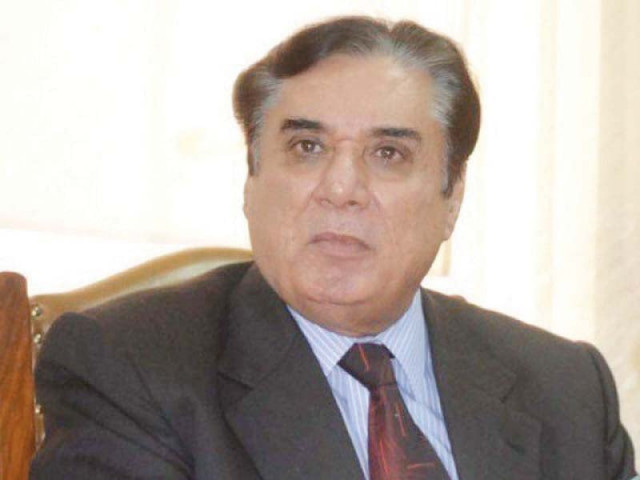President authorised to remove NAB chairman
New ordinance takes back powers from SJC

The government has taken another U-turn on the issue of National Accountability Bureau (NAB) chairman’s removal by omitting the forum provided under Article 209 of the Constitution for the purpose.
The Supreme Judicial Council (SJC) was mandated to remove the chairman through significant amendments made by the government in the National Accountability Ordinance, 1999 (NAO) one month ago.
Since the promulgation of the NAO, 1999, there has been ambiguity regarding the procedure to be followed for the removal of the NAB chairman.
Read more: Govt makes another amendment in NAB law
Under the original law, there was no clear procedure regarding removal of the NAB chairman.
Under the original law, it was said that the chairman “shall be removed over the same reasons as a judge of the apex court as mentioned in the SC Judges’ Misconduct 2009”.
However, there was no separate mechanism provided for the removal of the chairman in the law. It was not even mentioned that the Supreme Judicial Council (SJC) could be a forum regarding his removal.
In the 2001 Supreme Court judgment in the Asfandyar Wali Khan case, the federal government was directed to insert conditions regarding the removal of the NAB chief where the government ‘left out’ the procedure for the termination of the graft watchdog chief’s services.
Also read: No clear rules for NAB chief’s removal
In view of the Supreme Court order, an amendment was made in the NAO, 1999, wherein it was stated that the chairman “shall be removed over the same reasons as a judge of the apex court as mentioned in the SC Judges’ Misconduct 2009”.
Recently, the Supreme Judicial Council sought legal assistance from the attorney general for Pakistan as to whether it could initiate proceedings of misconduct against the chairman or not.
Subsequently on October 6, the government promulgated an ordinance, significantly amending the NAO 1999. The ordinance removed the ambiguity by mentioning that the Supreme Judicial Council (SJC) will be the forum regarding removal of chairman NAB.
The ordinance read, “The Chairman shall hold office for a period of four years on such terms and conditions as may be determined by the President and shall not be removed from office except on grounds provided for the removal of a Judge of Supreme Court in the manner and by the forum provided under Article 209 of the Constitution of Pakistan.”
However, the said clause is omitted by promulgating a fresh ordinance on October 31. Under the new amendment, the NAB chairman may be removed by the president on the same grounds of removal of a judge of the Supreme Court of Pakistan.
In view of the above, the SJC will not be the forum regarding removal of the NAB chairman. The power has been vested with the president, who is the authority regarding his removal. However, no procedure is being given as to how the president will terminate his services.
A senior government functionary informs The Express Tribune that rules will be framed to explain the procedure to be followed by the president regarding the NAB chairman’s removal.
It is learnt that ‘powerful circles’ were opposed to the procedure whereby the SJC was conferred with the powers to remove the chairman. The commission is made up of three senior Supreme Court judges and two senior chief justices of the high courts.
Law Minister Dr Farogh Naseem also opposed the same amendment. However, Attorney General for Pakistan Khalid Jawed Khan had convinced Prime Minister Imran Khan to mention the SJC as the forum to initiate misconduct proceedings against the NAB chairman.
Meanwhile, in the recently promulgated ordinance, the government has clarified that all proceedings -- including inquiries, investigations, references or trials commenced under the ordinance prior to October 6 in relation to an offence under the Anti-Money Laundering Act, 2010, shall be dealt with in accordance with the provisions of the ordinance, which existed prior to 6th day of October 2021. It is also clarified that in relation to any proceedings – including reference or trial – accountability courts shall have jurisdiction to enforce the anti-money laundering act.
In the newly promulgated ordinance, the government also clarified that till the installation of electronic facilities, the manner of recording of evidence already in place shall be continued. Likewise, it is also clarified that where an accused is released on bail, the amount of surety shall be fixed in the manner as deemed just and fit by the court.



















COMMENTS
Comments are moderated and generally will be posted if they are on-topic and not abusive.
For more information, please see our Comments FAQ